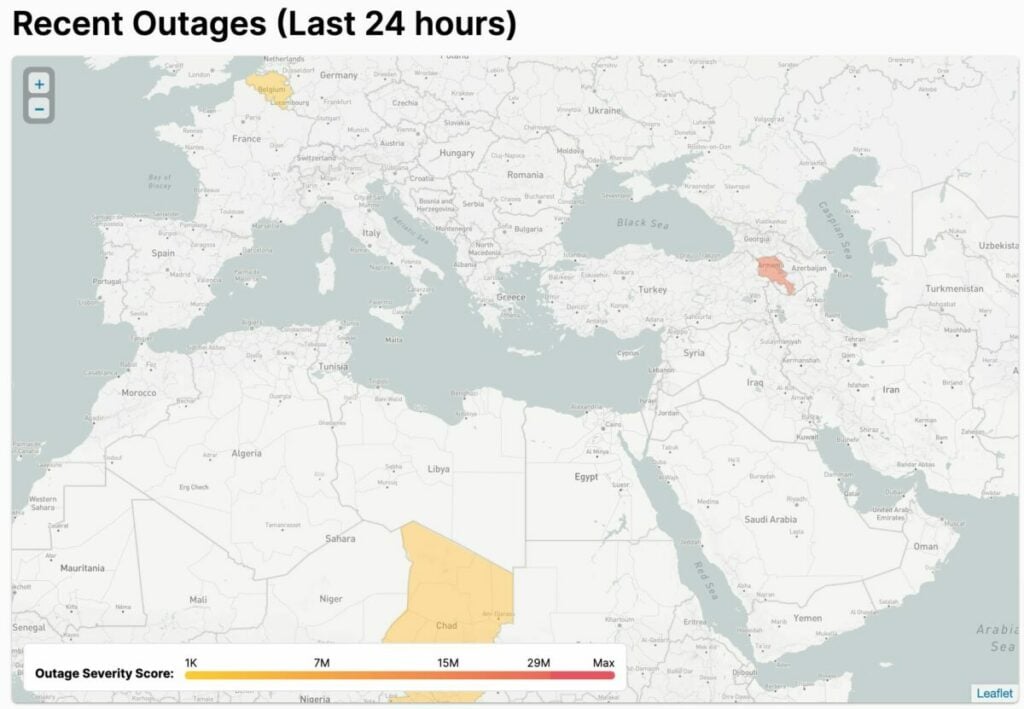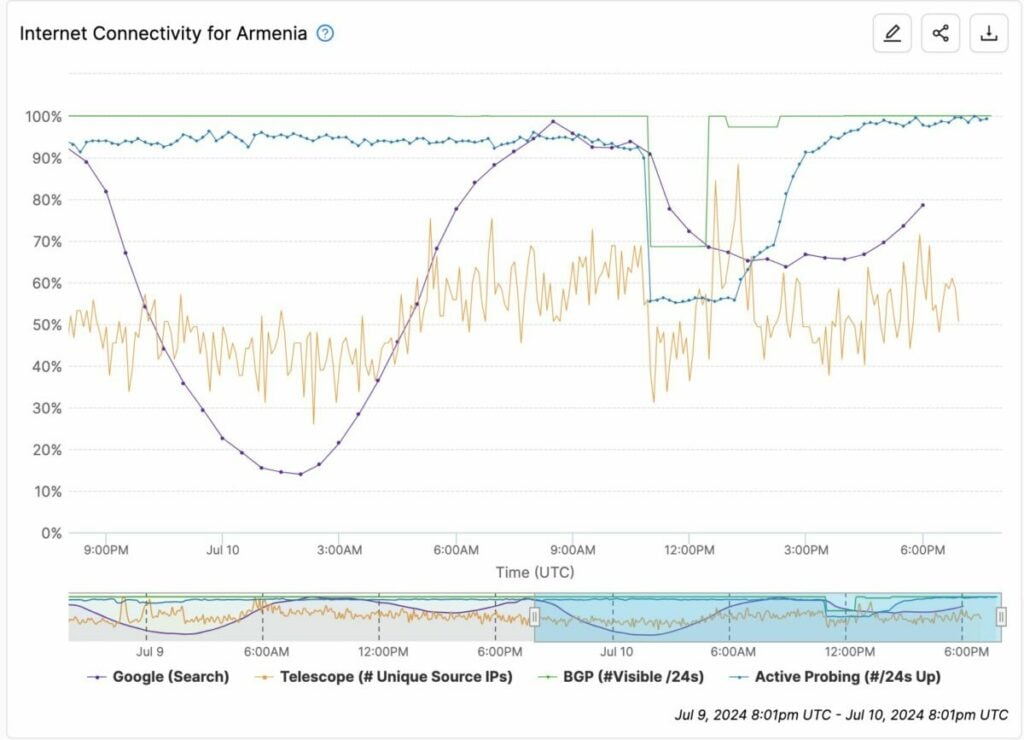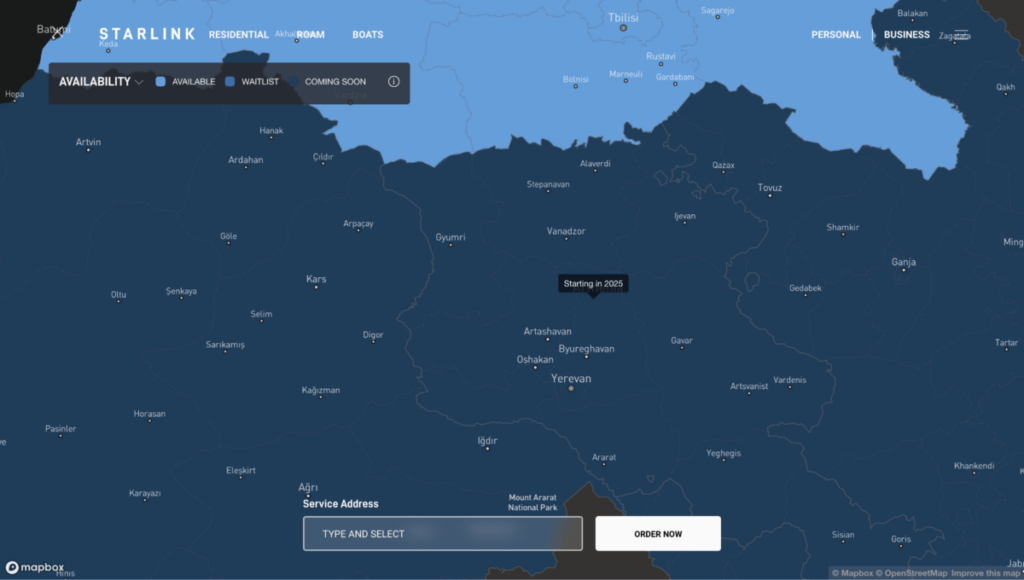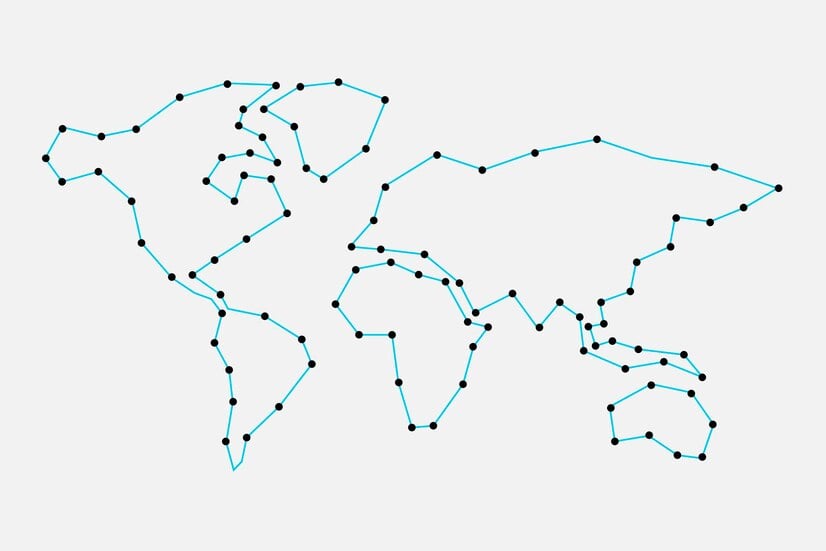Once again, a significant internet outage has been recorded in Armenia.
First, a cable was damaged during construction works. Then, the “persistent builders” damaged two more channels.
The channel that runs through Kirants was damaged during construction. As a result, the reserve channels passing through Tashir and Alaverdi were put into operation. However, at 14:40, the second backup channel passing through Tashir, and at 15:10, the third backup channel passing through Alaverdi, were also damaged due to construction works. This led to limited internet access in the republic’s territory. At the same time, Ucom was carrying out modernization work, which affected the fixed connection.
The failure of the channels overwhelmed the other internet channels, reducing connection quality, sometimes almost to zero.
According to the IODA system, it was the most extensive global outage on July 10.

The rapid connectivity decline can be observed in the following picture.

Such cases occur frequently due to construction works in Armenian or Georgia. Armenia, positioned in a geographically vulnerable location, has only two exits through Georgia and Iran, making such cases inevitable.
Internet outages have a significant impact beyond just affecting the entertainment of Instagram or TikTok users. They can also cause serious economic and financial impairment by disrupting business activities. Unfortunately, no calculations are available in Armenia to estimate the cost of such one-hour disruptions to the economy. However, it is important to recognize that Internet connectivity is increasingly critical for the country, as all transactions, from small non-cash commercial transactions to interactions between individuals, organizations, and the government, are digitized.
This implies that if there is an internet outage, everything can come to a halt. The more Armenia becomes digitized, the more important these channels will become. The government is also transitioning to cloud data storage, which implies access to international channels.
It’s essential to consider the possibility of sabotage attacks on cables during a potential military escalation with Azerbaijan. The dense geographical concentration of these cables makes them vulnerable to internal disruption. Therefore, it is crucial to explore alternative communication options to ensure diversified and reliable connectivity.
There are few alternatives. The first option is to build new cables and provide wider connections with international highways, which requires large investments.
The second option is satellite backup internet. There are various options, including one involving cooperation with the Starlink company. However, there is also an issue here.

Access to Starlink satellite internet subscriptions by country from the company’s official website
It has been confirmed that satellite Internet is currently available in Georgia, and it is set to become available in Azerbaijan within this year. However, the situation is less promising in Armenia.
Last year, the company’s website indicated that satellite Internet would be available in Armenia by 2024, but the date has now been pushed back to 2025. This is a pressing issue as the country’s reliance on Internet connectivity is increasing daily.







